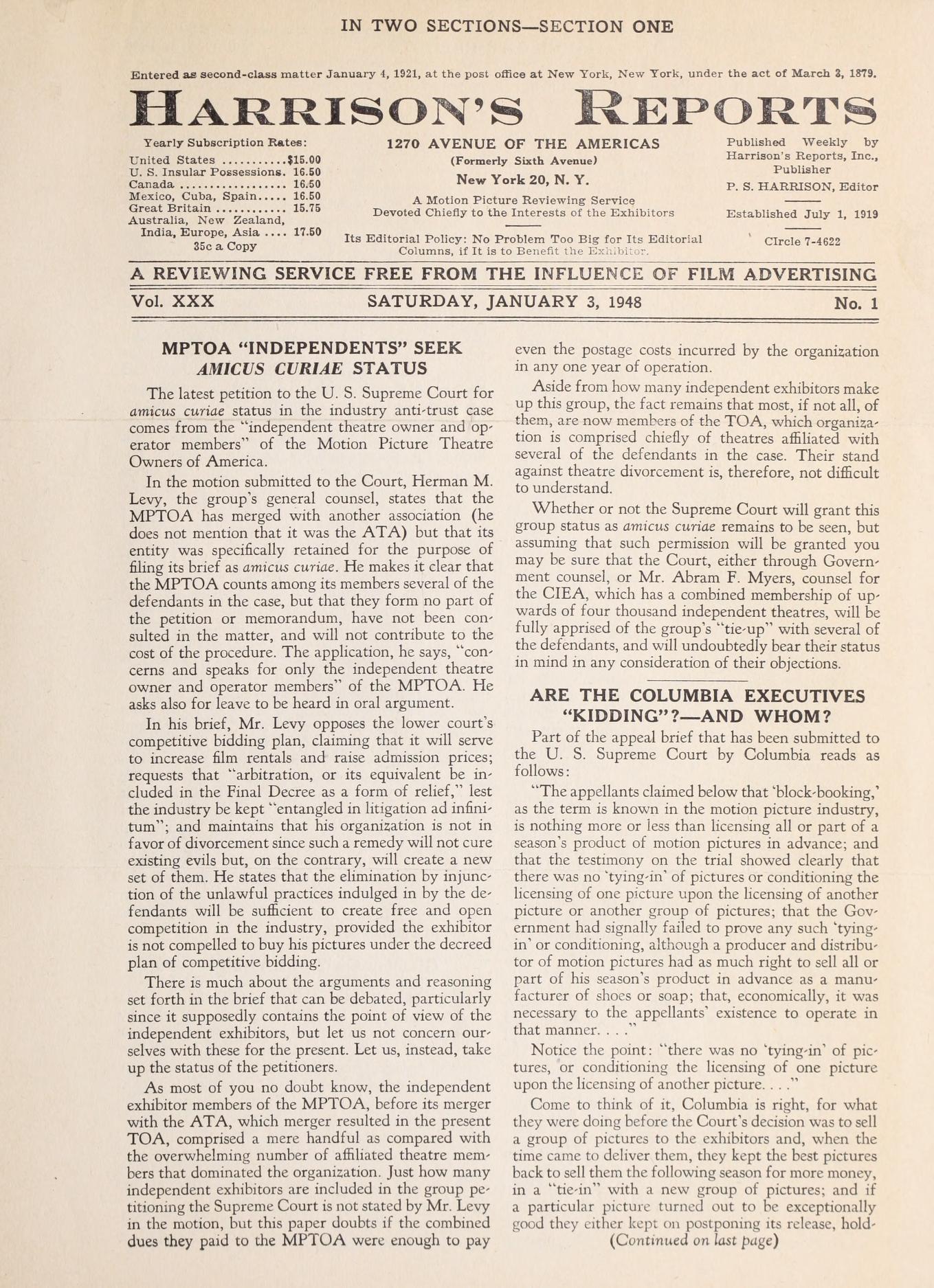Harrison's Reports (Prior revision dated Saturday 16 September 2023 03:20:55 -- @181)
Introduction
Harrison's Reports was an influential trade magazine that covered the motion picture industry from 1919 to 1962. The magazine was known for its independent and sometimes controversial film reviews, as well as its advocacy for fair business practices in the industry.
History
Harrison's Reports was founded in 1919 by James Harrison, a former attorney who had worked for the Motion Picture Producers and Distributors of America (MPPDA). The magazine was originally titled Motion Picture News Review, but was rebranded as Harrison's Reports in 1929.
The magazine quickly gained a reputation for its rigorous film reviews, which were based on Harrison's belief that movies should be rated not only for their artistic merits, but also for their social and moral value. Harrison's Reports also advocated for fair business practices in the industry, and was a vocal opponent of monopolies and studio-owned theaters.
Content
Harrison's Reports published weekly issues that consisted primarily of film reviews. The magazine used a rating system that evaluated each film on its artistic, social, and moral merits, and assigned a "Medal of Merit" to films that met its standards.
In addition to its film reviews, Harrison's Reports also covered industry news, such as box office reports, production updates, and legal developments. The magazine occasionally published special features, such as interviews with filmmakers or surveys of industry professionals.
Legacy
Harrison's Reports played an important role in the development of film criticism and the regulation of the motion picture industry in the United States. The magazine's ratings system and advocacy for fair business practices helped to establish standards that were eventually adopted by the industry.
Although Harrison's Reports ceased publication in 1962, its influence on film criticism and industry regulation continued to be felt. The magazine's archives are now maintained by the Academy of Motion Picture Arts and Sciences, and are available to scholars and researchers.
References
- Doherty, Thomas. Pre-Code Hollywood: Sex, Immorality, and Insurrection in American Cinema, 1930-1934. Columbia University Press, 1999.
- Fielding, Raymond. The American Newsreel: A Complete History, 1911-1967. McFarland & Company, Inc., Publishers, 2012.
- Slide, Anthony. Inside the Hollywood Fan Magazine: A History of Star Makers, Fabricators, and Gossip Mongers. University Press of Mississippi, 2010.{{Categories}}